Logic 9.1.2: How key commands for setting Marquee selection borders to transients behave
The behavior of the commands used to modify Marquee selection borders based on transients are by default still assigned to the Left (←) and Right Arrow (→) keys to change the right border of the selection, and Shift + Left or Right Arrow to change the left border. New to Logic 9.1.2 is the behavior of these key commands when there is a single point Marquee selection. If a single point Marquee selection exists, the Left and Right Arrow will move it's position, while Shift + Left or Right arrow will extend the single point into a selection.
The specific Key Commands that have been changed and renamed accordingly are the following;
Key Commands for Logic 9.1.1 or earlier

Key Commands for Logic 9.1.2

Using the Key Commands to adjust Marquee Borders
In the image below, a section of an audio region has a Marquee selection. Flex view is enabled to clearly display the transients in the region.
Whenever there is a Marquee selection over an area of a region, as in the image below:
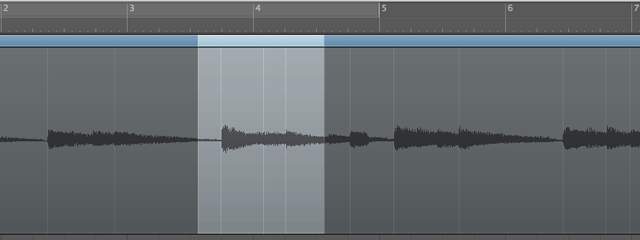
Pressing the "Set Marquee End (or Point/Other Side) to Next Transient" key command (default: →) will move the Marquee selection end to the next transient to the right.
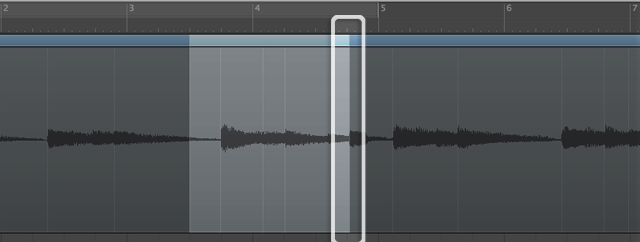
Additional → key presses continue to move the selection further to the right.
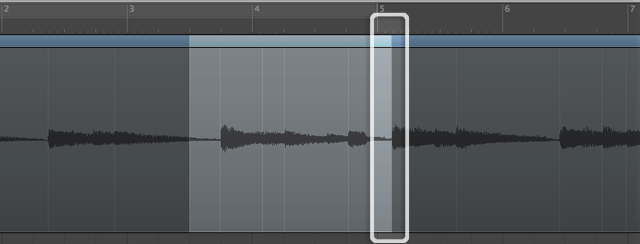
Similarly, the "Set Marquee End (or Point/Other Side) to Previous Transient" command (default ←) causes the end of the Marquee selection to move the next transient to the left.

Pressing the ← key again, the Marquee selection will jump to the next transient to the left.
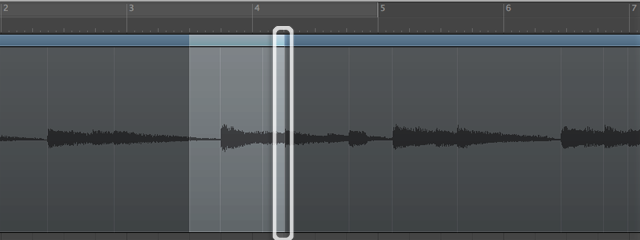
If you press the ← key enough times, the Marquee selection start and end will be a single point.
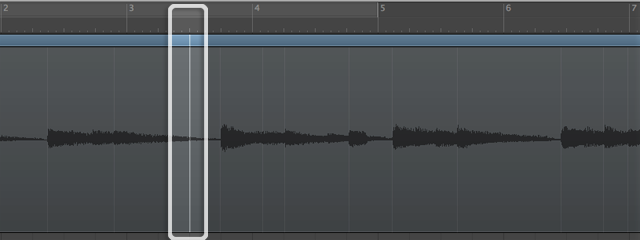
Once the Marquee selection is in this state, pressing either the ← or → keys will move the combined Marquee start/end position in either direction respectively.
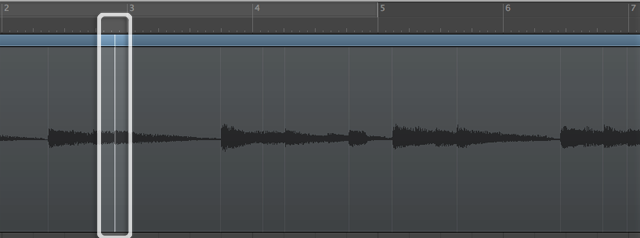
The "Set Marquee Start (or Extend Point) to Previous Transient" key command (default Shift + ←) moves the start of the Marquee selection to the next transient to the left. So, if we start with the original selection:

It moves to here:
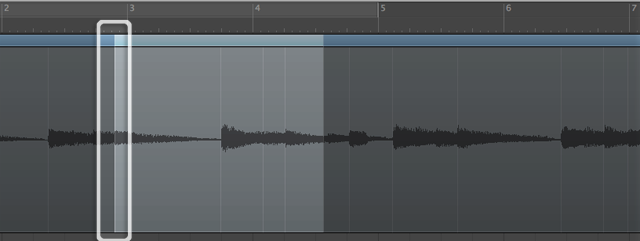
Additional Shift + ← key presses continue extending the selection leftward.
The "Set Marquee Start (or Extend Point) to Next Transient" key command (default: Shift + →) moves the start of the Marquee selection to the next transient to the right.

Additional Shift + → key presses will eventually bring the Marquee selection start to the same position as the selection end.

If you continue to press Shift + →, the previous Marquee selection start pivots around the previous end point, and continues rightward as the new Marquee selection end point. This allows you to smoothly continue adjusting the same border without changing to a different key command.

As soon as you make a new Marquee selection, the key commands resume their normal functions.
Using the Key Command and single sample Marquee selections to perform quick audio region edits
Single point Marquee selections are very useful if you want to quickly divide a region into sections based on transients. If you press the Delete key, the region will be split at the Marquee selection point.

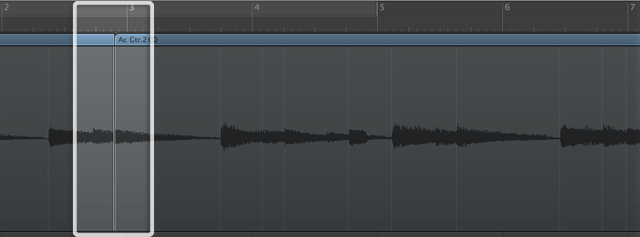
Afterward, the Marque selection remains active, so it's easy to use the ← or → keys to move the selection to other transients and quickly perform additional splits. You can clear the Marquee selection by clicking anywhere outside the current selection with the Pointer tool.
Read more http://support.apple.com/kb/HT4326
